John Durning is making pizza his way.
The New York native and owner of Pizzeria Deville has brought his expressive personality and signature style to the Chicago suburbs—and he has found a niche in Libertyville.
 “I’ve eaten pizza everywhere in every form all across this country,” Durning said.
“I’ve eaten pizza everywhere in every form all across this country,” Durning said.
“I find the way the Italians have made it for centuries in this wood oven really is, for my flavor, the superior way to do it.”
Durning has even found his pizza is surviving the ongoing gluten scare.
“With all the gluten food that is dying [in popularity], this is one that is actually flourishing,” he said.
Durning, who now lives in Libertyville with his family, was raised just outside New York City and he credits New York with influencing both the type of pizza he wanted to make and atmosphere he wanted to create at Deville.
Deville specializes in wood-fired pizzas—pizza cooked in a hardwood oven at approximately 700 degrees. But these are not your run-of-the-mill pies.
Durning describes his pizza as Neapolitan in style, which describes the way he makes and cooks the dough, but with New York roots and the names of his pizzas all may homage to different experiences he had with pizza back in New York.
“The Pride of the Yankees” pizza is based on ingredients from a slice shop in the Bronx, near Yankee Stadium, that Durning used to frequent.
The “Montorino Ommagio,” features thick-cut bacon, brussel sprouts, garlic, olive oil, pecorino and mozzarella cheeses and a balsamic reduction. The Montorino is inspired by a recipe Durning learned while working at a pizzeria in New York. He added the balsamic glaze as a way to put his own spin on the original.
Journalist Jennifer Billock, who reviewed Deville for the Daily Herald, said his use of uncommon ingredients sets Durning and his restaurant apart from the competition, which is plentiful in Libertyville’s crow ded downtown strip.
ded downtown strip.
“[The Montorino Ommagio] is the best pizza I’ve ever had,” Billock said. “I’d eat it every day if I could.”
Durning left a his career as a banker to open Deville—which celebrated its one-year anniversary in August.
It was a significant change of scenery, but he said having a business background was immeasurably helpful with everything from his thoughts on the kitchen to the wood-centric atmosphere in the dining area.
“You make it more of a process than a passion,” Durning said. “Sometimes it’s hard to step out of that, so being in the bank business, the analytical side of it, there’s no question it has helped and still helps all the time.”
Deville does not deliver, which is somewhat unusual for a pizza place. Durning said this is mainly due to the fact there are no preservatives in his crust, which means it will get cold faster than most of his competitors.
“Most Chicago pizza, there’s sugar and/or oil in the crust that acts as a preservative,” Durning said.
Customers do have a takeout option, but Durning said even that is something he “tosses and turns over.” Even though not offering delivery may negatively affect his business, for Durning, it’s all about customer experience and quality control. He has even been known to hand-deliver pizzas to takeout customers who were unsatisfied with their order.
Deville’s most serious threat isn’t competition, it is a lack of parking around the restaurant. 
“It’s the biggest impediment to continued growth,” he said.
Deville currently utilizes the local Harris Bank’s parking lot for its overflow and employee parking.
“What a great corporate citizen they are,” Durning said of the bank.
“Other places, they just say ‘get out of here.’”
The parking situation may improve soon and Durning is hopeful the village will approve the construction and funding for a new 348-spot parking garage near Deville.
Durning said the additional parking will benefit his business, but it may not be a seamless transition, as the construction project will shut down one of the few lots Deville currently relies on.
Now with established roots in Libertyville —which has a vibrant restaurant scene—Durning credits Deville’s first-year success to finding and filling a need for wood-fired pizza.
—which has a vibrant restaurant scene—Durning credits Deville’s first-year success to finding and filling a need for wood-fired pizza.
But he has a specific vision for the kind of place he wants Deville to be, the kind of role he wants it to play in the community, and that vision is impossible to divorce from his restaurant’s success to this point.
“When I opened this place, I wanted the community to receive it well and to know that this was a place I could legitimately see tiny kids come in now, and in ten, fifteen years we’re taking care of them at homecoming,” Durning said.
“I love all the families I get to know and see coming in.”


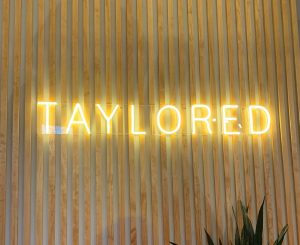
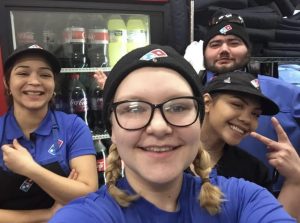

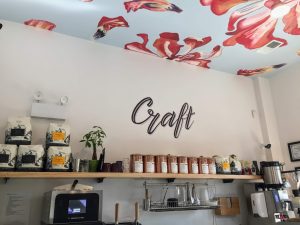

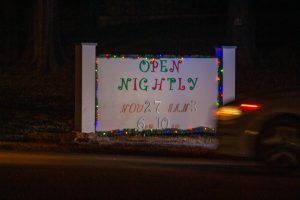
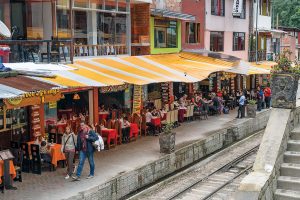


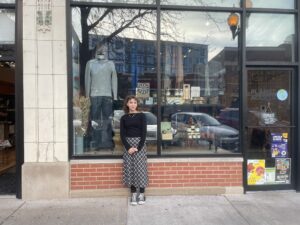


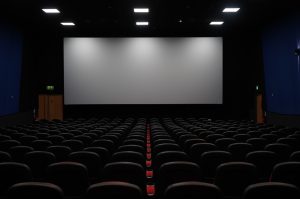

Be First to Comment